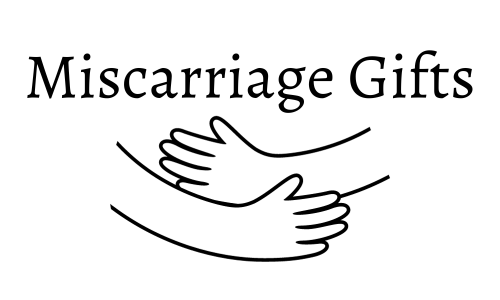When most people think about postpartum depression (PPD), they think of it occurring after childbirth. However, miscarriage—a pregnancy loss before 20 weeks—can also trigger postpartum depression. The emotional and physical toll of a miscarriage can lead to depression, including the specific type known as postpartum depression. This blog post will explore how miscarriage can cause PPD, what symptoms to look out for, and how to seek help if you or someone you know is struggling.
How Does Miscarriage Cause Postpartum Depression?
After a miscarriage, the body undergoes significant hormonal changes, similar to those experienced after giving birth. Hormones like estrogen and progesterone, which were elevated during pregnancy, suddenly drop. These hormonal shifts can affect a person's mood and mental well-being, increasing the risk of depression.
In addition to the physical changes, the emotional impact of losing a pregnancy is profound. Grief, sadness, guilt, and even trauma are common feelings after a miscarriage. Combined with the hormonal fluctuations, this emotional turmoil can make it easier for postpartum depression to develop.
Here are some key factors that contribute to postpartum depression after miscarriage:
Hormonal Changes
After a pregnancy, whether it results in a live birth or a miscarriage, the body experiences a sudden drop in hormones. This shift can trigger mood changes and increase the risk of depression.
Grief and Loss
Miscarriage is an emotional loss. The hopes and dreams tied to the pregnancy are suddenly gone, leaving a deep sense of grief. This grief can fuel depressive feelings and make it harder to cope.
Physical Recovery
The physical symptoms of miscarriage—such as bleeding, cramping, and fatigue—add another layer of difficulty. These physical challenges can make emotional healing even more difficult, leading to depression.
Feelings of Isolation
Many women and couples feel isolated after a miscarriage. They may not have told many people about the pregnancy or feel uncomfortable talking about their loss. This isolation can intensify feelings of sadness and despair.
Self-Blame
It is common for parents, especially mothers, to blame themselves for the miscarriage. This guilt, while misplaced, can be a heavy emotional burden, contributing to feelings of worthlessness or failure.
Recognizing the Symptoms of Postpartum Depression After a Miscarriage
Postpartum depression after miscarriage often shows similar symptoms to PPD that occurs after childbirth. However, because the loss may not be as widely recognized or supported, some people may struggle to identify their depression.
Common symptoms of postpartum depression after a miscarriage include:
- Persistent sadness or hopelessness
- Feeling emotionally numb or detached from loved ones
- Avoiding social interactions or isolating yourself from others
- Severe anxiety or panic attacks
- Trouble sleeping (beyond physical recovery)
- Loss of interest in things you used to enjoy
- Extreme fatigue or lack of energy
- Intense feelings of guilt or worthlessness
- Thoughts of self-harm or suicide
These feelings are not just the normal ups and downs of grief. If they last for more than two weeks or get worse over time, it may be a sign of postpartum depression. It's important to take these feelings seriously and seek help when needed.
What Can You Do If You Suspect Postpartum Depression?
If you think you may be experiencing postpartum depression after a miscarriage, know that you are not alone. Many people go through similar struggles, and help is available. Here are some steps you can take:
Talk to a Healthcare Professional
Your doctor or mental health provider can help assess your symptoms and recommend the best course of treatment. This might include therapy, medication, or a combination of both.
Seek Therapy or Counseling
Talking to a therapist, especially someone who specializes in grief or postpartum depression, can help you process your emotions in a healthy way. Therapy provides a safe space to talk through feelings of sadness, guilt, and loss.
Join a Support Group
Finding a miscarriage support group can be incredibly comforting. These groups allow you to connect with others who have experienced similar losses. Sharing your story can help reduce feelings of isolation and guilt.
Take Care of Yourself
Self-care is crucial during this time. Make sure to rest, eat nourishing food, and engage in gentle activities that bring you comfort. Even small steps like going for a walk, practicing deep breathing, or listening to calming music can help.
Reach Out to Loved Ones
Lean on your support network—whether it's your partner, family, or close friends. Talking about your loss and feelings can be hard, but having someone to listen can make a big difference.
Why You Shouldn’t Ignore Postpartum Depression
Postpartum depression is a serious condition, whether it happens after childbirth or miscarriage. Ignoring the symptoms can delay your emotional healing and negatively affect your overall well-being. Seeking help is not a sign of weakness; it is an important step toward recovery. With the right support, you can begin to heal emotionally and physically.
Final Thoughts
Miscarriage is a heartbreaking experience, and it's normal to feel overwhelmed with grief, sadness, and even guilt. But when these feelings turn into long-lasting depression, especially postpartum depression, it's essential to get help. By recognizing the signs of postpartum depression and seeking the support you need, you can take steps toward healing.
Remember, it's okay to not be okay after a miscarriage, but you don't have to go through it alone. Reach out to others, whether through professional support or your personal network, and know that recovery is possible.
